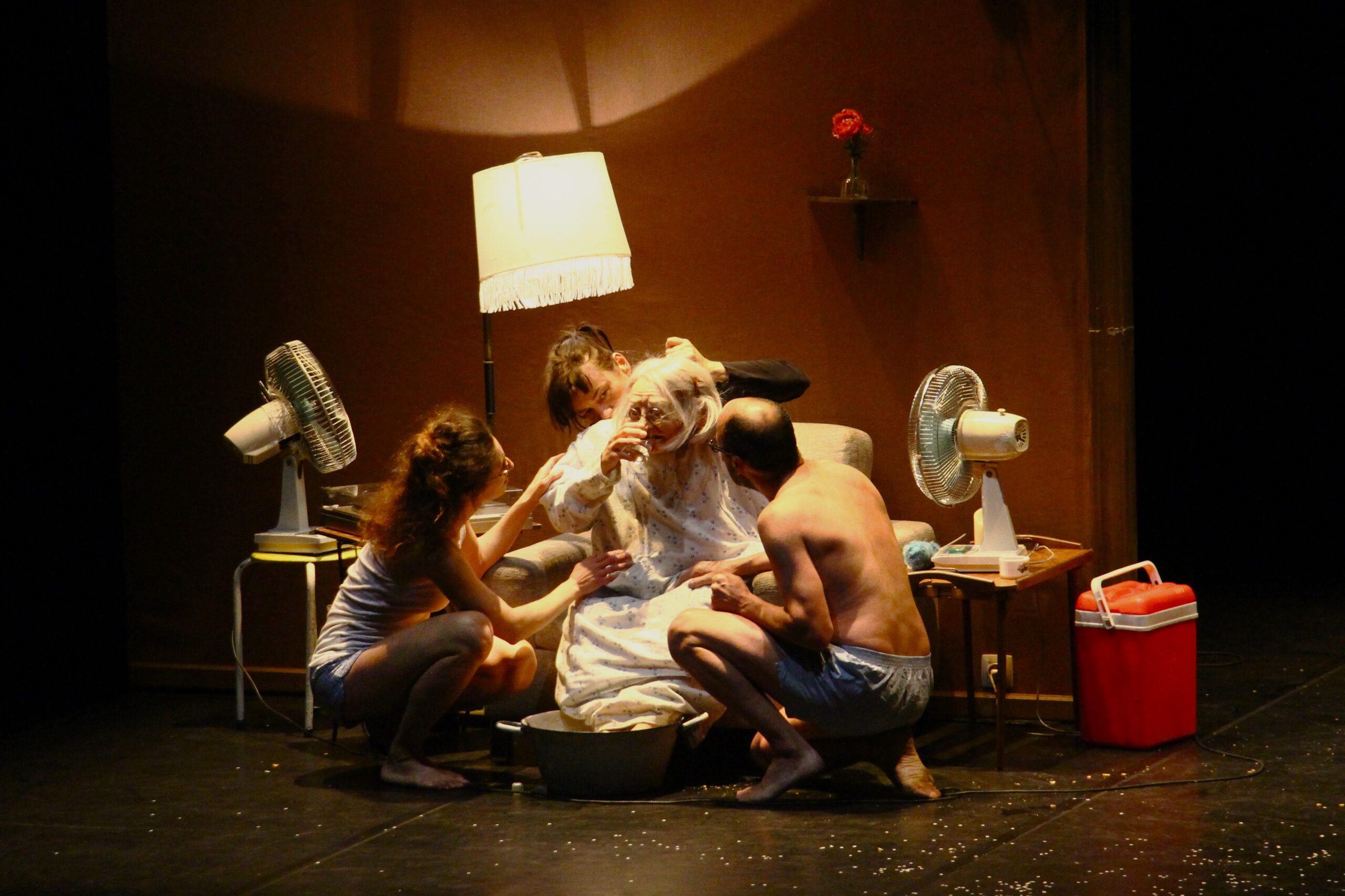by Chris Dobson.
We all know the story of how Julius Caesar’s rise to glory was cut untimely short through an act of betrayal. This production of Shakespeare’s great tragedy on the subject modernises the historical context and gender swaps several characters, most significantly Brutus (Anna Crichlow) and Cassius (Charlotte Bate), the chief conspirators in Caesar’s assassination.
Dickon Tyrrell plays Caesar as an amicable fellow, popular with the masses. Samuel Oatley, meanwhile, is Mark Antony, Caesar’s scheming ally. If the audience was not aware of the fate in store for Caesar, the play provides several omens, notably: “Beware the Ides of March.” The effect, unfortunately, is that the first half of the play drags, with time stretching out until the point of Caesar’s bloody downfall.
 |
| Dickon Tyrrell as Julius Caesar. Photo: Helen Murray |
The play’s second half moves at a much more engaging pace, as Rome descends into civil war following Mark Antony’s explosive funeral speech for Caesar, which Oatley delivers magnificently. However, for all the fighting, this play is not chiefly concerned with matters of war, but rather the friendship between Brutus and Cassius. The two women have similar aims, but they are otherwise opposites: Where Cassius is passionate in her rage and despair, Brutus is calm, almost unemotional. Queering the marriage of Brutus and Portia (Cash Holland) is interesting, but it a shame that this production does not further explore the homoerotic tension between Brutus and Cassius, which is only hinted at.
 |
| Anna Crichlow as Brutus. Photo: Helen Murray |
Shakespeare’s Julius Caesar has often been interpreted through the lens of modern populism, but this production is overshadowed by the war in Ukraine, too. Director Diane Page’s intention may have been to highlight the absurdity of war, but the comical manner in which many of the deaths and fight scenes are played results in a production which feels tonally all over the place, veering from tragedy in one moment to comedy in the next. Matters are not helped by the fact that the play’s forty characters are shared between just eight actors, resulting in a stretched cast that is at times confusing, especially when the actors have to rapidly switch characters and allegiances between scenes.
Omar Bynon deserves praise, though, for his energetic work as (among other characters) the cobbler, who energises the crowd at the beginning of the play, whilst Jack Myers revels in his role as Casca, who frequently expresses disdain toward “the common herd”, with their “sweaty nightcaps” and “stinking breath”.
 |
| Omar Bynon in Julius Caesar. Photo: Helen Murray |
As is often the case now with productions of Shakespeare plays, Julius Caesar is given a 21st century makeover, but the use of guns and modern clothing jars with the play’s historically inflected language, and the gender reversal of certain characters leads to some inconsistencies, as when Mark Antony repeatedly refers to the female Brutus as “an honourable man.” There is nothing wrong with modernising a Shakespeare play, or ironising the violence of its action scenes, but this production feels half-hearted, caught between loyalty to the source text and the desire to make it relatable for modern theatregoers.
Julius Caesar is at Shakespeare’s Globe until 10 September and touring.
Chris Dobson is a freelance journalist from the North of England. He now lives in North London and is passionate about theatre, film and literature.















